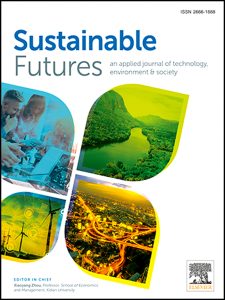
Illustration: Cup of Couple / pexels.com
How to Shift Diets for the Climate? The Overlooked Power of Social Values
Zsófia Benedek, Lajos Baráth, Imre Fertő, Zoltán Bakucs
Why Dietary Change Remains Elusive
Global meat consumption has risen dramatically over the past decades, in direct contradiction to mounting evidence and policy recommendations pointing to the benefits—both for the planet and public health—of reducing animal-based diets. In Hungary, as across much of Central and Eastern Europe, meat-centric diets are the cultural norm, and the penetration of plant-based eating remains marginal. Despite the proliferation of public health campaigns and environmental warnings, only incremental progress has been made in encouraging people to cut back on meat.
What explains this inertia? Why are campaigns highlighting health risks, environmental damage, or animal welfare so often ineffective? Our new research suggests the answer may lie less in what people know, and more in the values that underpin their daily choices—particularly their sense of community and social responsibility.
Beyond Information: The Role of Human Values
Most interventions to promote sustainable diets rely on information provision—hoping that if consumers know more about the health and environmental downsides of excessive meat consumption, they will change their behavior. Yet, as behavioral economists and psychologists have long noted, knowledge alone rarely shifts habits entrenched in culture, identity, and social norms.
Our study, based on a representative survey of over 1,000 Hungarian adults, moves beyond individual motivations and instead examines how basic human values, as theorized by Schwartz, interact with health, environmental, and animal-welfare motivations to shape people’s willingness to reduce meat consumption.
The Schwartz Value Theory identifies ten basic human values (such as universalism, benevolence, tradition, hedonism, achievement, etc.), which can be grouped into “social” and “personal” orientations. Socially oriented values prioritize the welfare of others and the community (universalism, benevolence), while personal values focus on self-enhancement and individual pleasure (achievement, power, hedonism).
Key Findings: Health Trumps Environment, but Social Orientation Matters Most
Our first striking result is that health concerns are by far the most effective motivator for considering the adoption of at least one additional meat-free day per week. Environmental and animal welfare motivations are substantially weaker. For example, among people whose diets are evenly balanced between meat and plant-based meals, 77% were open to an extra meat-free day for health reasons, while only 53% would do so for the environment and 45% for animal welfare. Even among the most committed meat eaters, health-based arguments resonated much more strongly than environmental or ethical ones.
But perhaps the most significant and overlooked insight is that people’s underlying social values are a powerful predictor of dietary openness—regardless of what initially motivates them. Those with a stronger orientation toward social values (community, benevolence, universalism) consistently expressed a higher willingness to reduce meat consumption across all motivations. In contrast, the impact of personal values (achievement, power, hedonism) was weak or statistically insignificant.
This means that social cohesion and a sense of shared responsibility can nudge people toward more climate-friendly eating even if environmental or animal-welfare arguments alone are not persuasive. In other words, it’s not just what we know or even what we care about individually—it’s how strongly we identify with our community and feel responsible for collective well-being.
Information Still Matters, But Not Alone
Our results do not imply that information campaigns are useless. On the contrary, people who were aware of the environmental and health consequences of meat-heavy diets were indeed more willing to change. However, the impact of this knowledge was roughly equal to that of strong social values. In practical terms, well-designed awareness campaigns can and should be part of the policy toolkit—but policymakers should recognize that facts alone have limited reach, especially in cultures where meat consumption is a marker of tradition, identity, or status.
Demographics and Lifestyle: Who Is Most Willing to Change?
Some demographic factors matter, but not all in the expected ways. Age is relevant mainly for animal welfare motivations, with younger people showing more sensitivity. Gender was not significant in our models, nor was income. Education had a modest positive effect only for environmental motivations. Lifestyle factors—such as organic food preference, physical activity, or existing dietary restrictions—were positively associated with openness to reducing meat.
Yet, regardless of demographics or current dietary habits, habitual meat-eaters were much less willing to change, underscoring the challenge of overcoming ingrained cultural patterns. For these groups, both value-based and information-based strategies are likely needed.
Policy Implications: Fostering Social Values for Sustainable Diets
What do our findings mean for policymakers and advocates aiming to drive dietary transitions for climate and health?
Move Beyond Individual Messaging: Policies and campaigns should go beyond simply informing individuals about health or climate risks. They should aim to foster community, solidarity, and a sense of shared purpose around sustainable eating. Community-based interventions, group challenges, or workplace and school programs can leverage social dynamics far more effectively than one-way information flows.
Integrate Sustainability into Education: Embedding sustainability and prosocial values into school curricula from an early age can shape the next generation’s attitudes toward food, health, and the environment. Participatory learning, volunteering, and group activities can strengthen social bonds and shared responsibility.
Support Local Food Initiatives: Community gardens, food cooperatives, and local food events not only make plant-based options more accessible but also reinforce social norms and collective action.
Design Long-term, Consistent Campaigns: Norms change slowly. Persistent, visible promotion of collective benefits (rather than just individual health gains) can gradually shift cultural attitudes toward meat and sustainable diets.
Measure What Matters: Future research and interventions should explicitly measure and seek to influence social values, not just knowledge or attitudes. Value-driven interventions may yield more lasting change than knowledge transfer alone.
Rethinking How We Promote Climate-Friendly Diets
Our study contributes a novel, multidimensional perspective to the literature on sustainable food transitions: shifting diets is not simply a matter of better information or individual incentives. Social cohesion and value orientation—our sense of belonging and collective responsibility—are crucial, yet underutilized levers. If we want to encourage climate-friendly eating at scale, we need to invest not only in facts and policies, but also in the fabric of our communities.
Policymakers in Hungary and beyond should therefore look beyond individual “nudges” and consider deeper, value-based strategies that strengthen community and shared identity. Sustainable dietary transitions, like many forms of collective action, begin not in the supermarket, but in our sense of who we are together.
 Reference:
Reference:
Benedek, Zs., Baráth, L., Fertő, I., Bakucs, Z. (2025).
“How to encourage people to follow a climate-friendly diet? Increase social cohesion!”
Sustainable Futures, 10 (2025) 101106.

